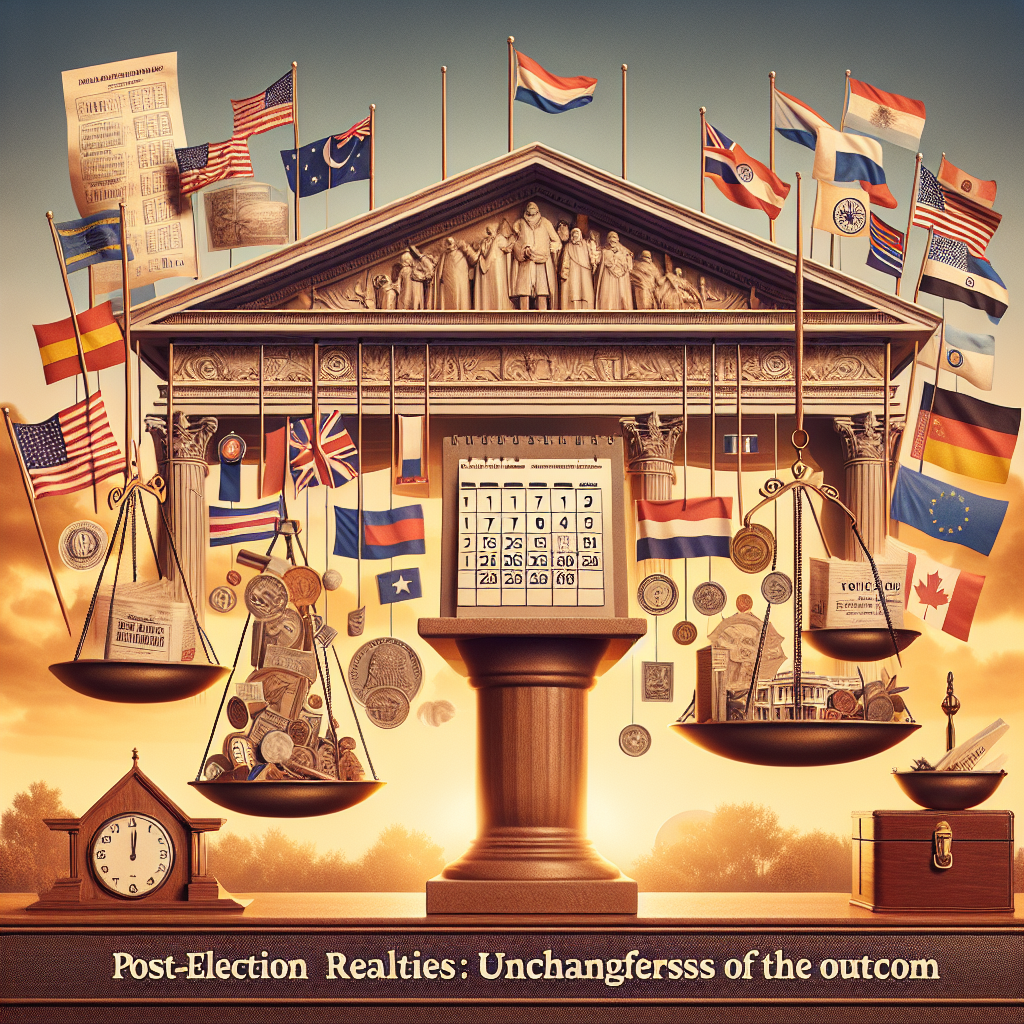The sentiment captured in Thorne’s quote, “If voting could ever really change anything, it’d be illegal,” reflects a deepening disillusionment with the political process, particularly in the context of recent elections. The outcome of the latest presidential race reaffirms a prevailing belief that, regardless of the candidates—be they Donald Trump or Kamala Harris—the underlying structures of power will remain largely unchanged. Despite the billions spent on creating an illusion of choice, the entrenched bureaucracy and the forces behind the so-called Deep State continue to operate with relative autonomy. As a result, the average citizen might feel that their vote ultimately contributes little to genuine change, leading us to a sobering conclusion: the status quo will maintain its stronghold.
The persistence of systemic issues under the rule of both Republican and Democratic administrations reveals a disheartening truth about American governance. Issues such as ongoing wars, drone strikes, surveillance practices, and police violence remain prevalent regardless of which party takes the reins. This disparity highlights that the election outcome is merely a superficial alteration that does not threaten the entrenched interests benefiting from these ongoing problems. Indeed, the political cycle often serves to distract the electorate while the state apparatus continues to wield power over the citizens unimpeded. Hence, the true nature of government, which encompasses the powerful and unelected officials behind the scenes, persists regardless of electoral outcomes.
A closer examination of government priorities during elections illustrates a disconnection between the needs of constituents and the actions of those in power. Legislation that strips away constitutional rights, such as the USA Patriot Act and the National Defense Authorization Act, illustrates the convenience with which the government circumvents legal protections under the guise of national security. The implications of such laws are profound, as they skew the very notion of civil liberties, rendering the average citizen vulnerable to the whims of an increasingly authoritarian regime. The erosion of rights, especially First and Fourth Amendment protections, underscores a key theme: the citizenry finds itself under ever-closer scrutiny and increasingly militarized authority.
As we scrutinize the nature of the so-called Deep State, it becomes evident that elections do little to diminish its power. This shadow government operates outside the constraints of electoral cycles, ensuring that its agenda continues regardless of public sentiment or electoral outcomes. Often referred to as the military-industrial complex or the surveillance state, this apparatus prioritizes control, funding, and influence that transcend party politics. The entrenchment of these institutions speaks to a level of complicity among purported political representatives—mere puppets in a larger game absent of genuine accountability or transparency.
In scrutinizing the American military engagement globally, it is equally clear that the likelihood of endless warfare persists, merely occurring under different leadership styles. With military expenditures reaching staggering heights—over $900 billion annually—the question arises: who benefits from this continual war-making? The answer points to a nexus of corporate interests and an elite few who profit from conflict, thereby ensuring that military action and imperial expansion remain the default positions of U.S. foreign policy. This cycle reinforces an economy that favors military might while dragging the taxpayer into a morass of debt and socio-economic inequality, perpetuating instability both at home and abroad.
Finally, the concentration of power experienced through the office of the presidency raises alarming questions about accountability and governance. The historical and contemporary expansion of presidential power reflects a troubling trend toward an imperial presidency that subjects citizens to unilateral decision-making, often beyond constitutional checks. The accumulation of these powers creates a toolbox for rulers that fosters a culture of fear and repression. The grim reality is that the government increasingly positions itself as the greatest operational threat to its citizens, contrasting sharply against the perceived dangers it claims to combat. This dynamic—one wherein government authority becomes the principal adversary against the liberties and rights of the populace—reinforces the idea of a necessary collective response to challenge the status quo and reinstate a government that genuinely represents the interests of the governed.

